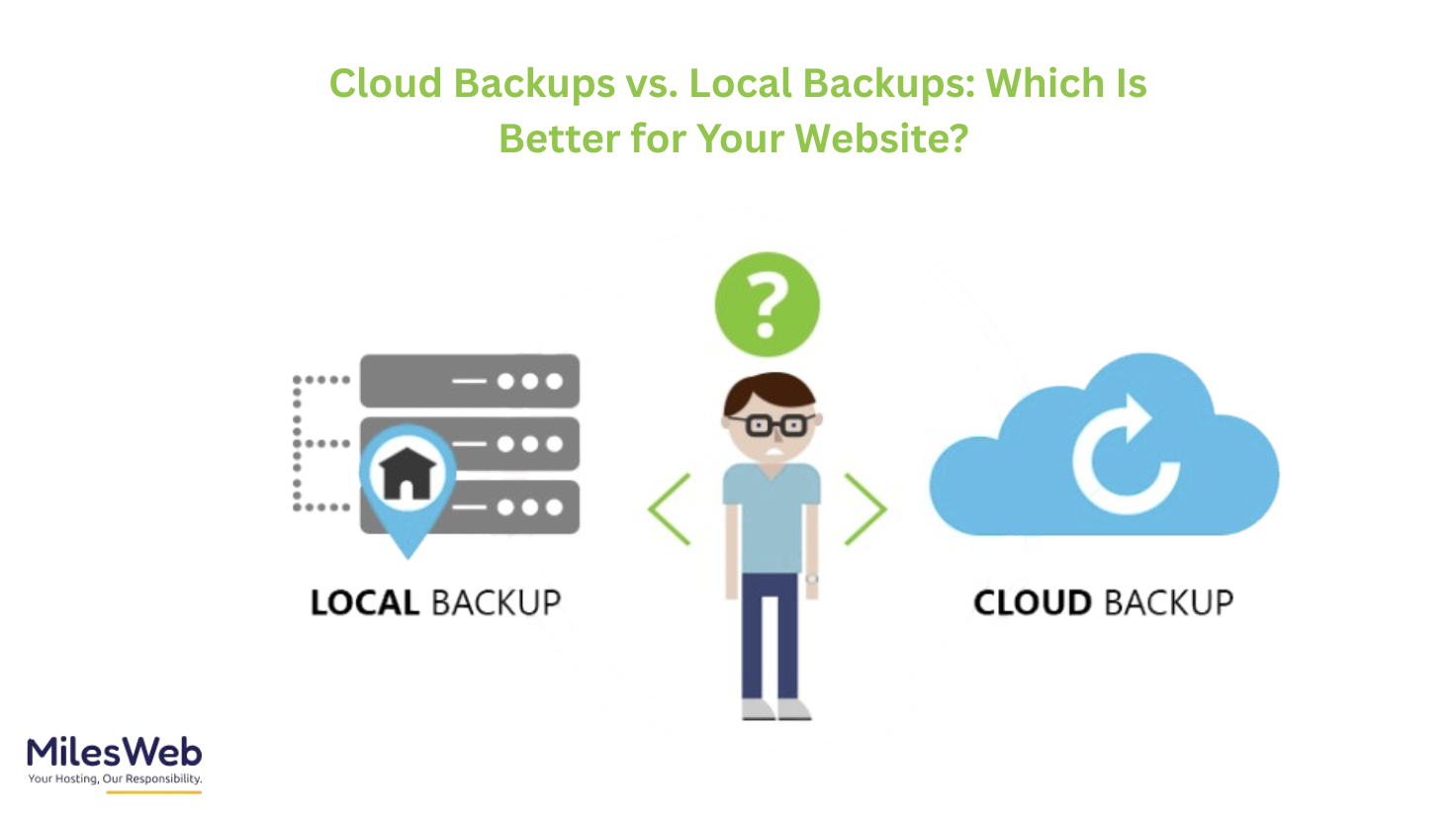Cloud Backups vs. Local Backups: Which Is Better for Your Website?
Website backup is a crucial habit for ensuring data safety and business continuity. And when we talk about the storage, the biz question always persists: should you rely on cloud or local backups even for mission-critical websites like eCommerce? Reliable ecommerce hosting plans offer the best backup feature for your website.
Both options have pros and cons depending on the website’s activity and security needs. The blog discusses how each backup method operates, their advantages, and how to choose the one that protects the website.
Understanding Cloud Backups
Cloud backups store a website’s data on remote servers that third-party providers manage. You can access these servers globally. It gives the flexibility and safety from physical hardware failures.
The biggest appeal of cloud backups is they are automatic, scalable, and need less manual intervention. Whether your server crashes or your local drive gets corrupted, your website data remains safe and ready to restore.
Understanding Local Backups
Local backups copy the website data on physical storage devices like external hard drives, USB drives, or on-premise servers. They offer direct data access to users without relying on an internet connection.
Many website owners prefer local backups for simplicity and control. However, they also come with risks, such as hardware failure, theft, or environmental damage, which could lead to permanent data loss.
Advantages of Cloud Backups
Cloud backups are secure, scalable, and automated, making them ideal for dynamic websites and growing businesses. They eliminate manual storage concerns and keep data safe even during hardware issues or server crashes.
Local backups are much easier and more controlled by many webmasters. Nevertheless, they also have risky sides, including hardware malfunction, theft, or environmental impact that may result in the loss of data on a permanent basis.
Advantages of Cloud Backups
Cloud backup is to be used on dynamic web pages and expanding businesses, as it is secure, scalable, and automated. They are used to remove the problem of manual storage and prevent loss of data even when hardware malfunctions and servers leave.
There are also numerous cloud backup systems that encrypt data on sensitive issues and redundancy on various data centers across the globe. This guarantees that your information on the website remains secure even when one instance of the server or area is down.
Drawbacks of Cloud Backups
Cloud backups depend on the internet connection. A slow or unstable connection delays the backup or restoration process. They become costly over time if the website stores large data amounts. Additionally, entrusting your data to a third-party provider can present privacy complexities for businesses with sensitive or regulated data.
Thus, it is critical to select a provider with a strong reputation and encryption standards. MilesWeb offers you advanced DDoS protection and free backups with their best hosting for Laravel project
. It protects the website and your online identity.
Drawbacks of Local Backups
The actual concern regarding local backups centers around the vulnerability to physical damage or the device being lost or stolen. In a single incident or event (fire, flood, or hardware failure, for instance), you could lose access to all copies of your local storage!
Moreover, a manual backup process takes time and can be forgotten at each interval. If you don’t have an outlined approach, there’s a good chance you’ll leave off vital updates or keep critical content added between intervals.
The Hybrid Backup Strategy: Best of Both Worlds
Several professionals prefer a hybrid approach that uses cloud and local backups together. MilesWeb deploys Acronis cloud backup technology to ensure faster data recovery.
For example, you may want to schedule daily cloud backup for ease and weekly local backup for speed. This layered protection approach provides the best combination of reliability, speed, and completeness.
Conclusion
There is no one perfect solution when we talk about cloud or local backup. Cloud backups are convenient and resilient, while local ones offer control and speed. The best option depends on your website’s activity and the data significance. To totally take a load off your mind, a hybrid option is your safest option: the flexibility of cloud solutions and local backups. That means your site is protected regardless of what comes your way.


Leave a Reply